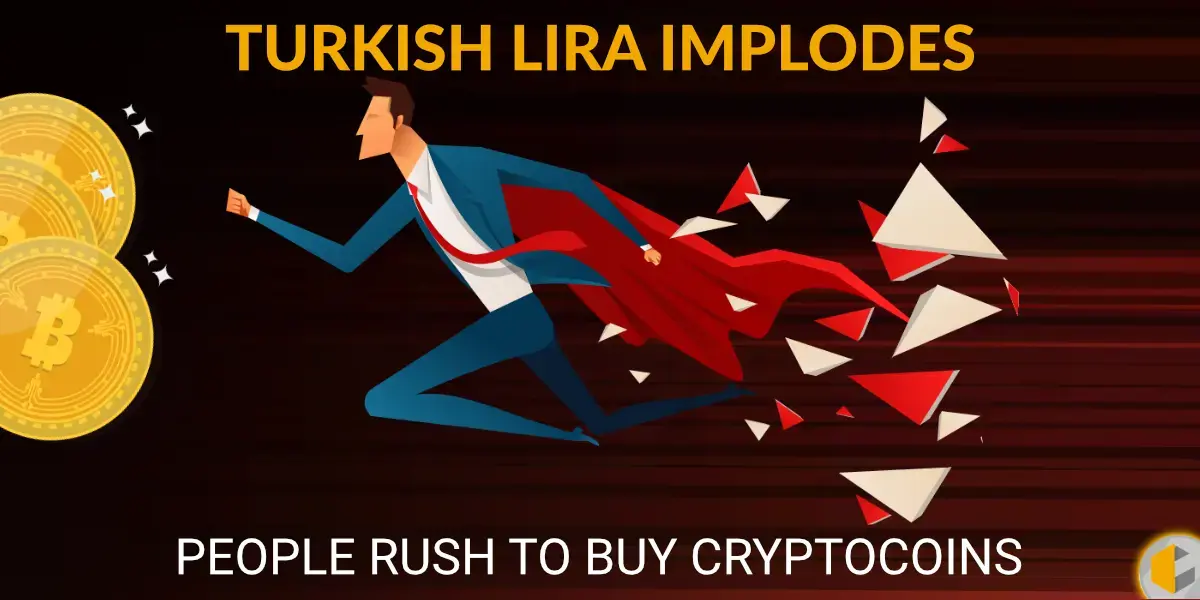
In Turkey, the trading volume of Cryptocoins has sharply increased as a result of a weakening fiat. The Turkish Lira has plunged 14% against the US dollar as a result of new US imposed sanctions and this has caused panic to set in across the country. With consumers increasingly looking to invest in the Cryptocurrency market, various governments have attempted to use blockchain technology as a way to curb their economic woes. Venezuela even managed to launch their own coin while Iran is considering the creation of one. What is a centralised cryptocurrency and can it be compared to the regular market? It is also important to think whether this will become a more common consideration as more countries start to suffer from inflation and see their populations moving away from fiat.
What is a Centralized Cryptocurrency
Some countries who are facing similar problems as Turkey have looked at the implementation of Cryptocurrency within their financial institutions. These plans are often not rigid, and there the tone of language used when this solution has been discussion has often lacked nuance. Essentially when countries talk about embedding Cryptocurrency as a way of solving some financial issues, they mean adopting a highly centralised form of it. This centralised form is the antithesis to the original purpose of Cryptocurrency which has always been decentralisation. A centralised cryptocurrency is one that is entirely controlled by a government or a company. Governments have also tended to keep quiet about plans, and this lack of transparency is vehemently opposed to the core concept of Cryptocurrency. A state-issued Cryptocurrency should not be held in the same regard as traditional Cryptocurrencies which are not backed by fiat.
Turkey Volume News
The Turkish Lira has taken a solid knock after the US sanctions, and this has dramatically increased the volume of Cryptocurrency investment by Turkish residents. Coinmarket has reported that the three major Turkish exchanges have experienced a volume increase of over 100% within the last 24 hours. It seems like this a trend that will continue as Turkey falls into economic turmoil. Turkey lawmakers touted a nationally centralised cryptocurrency a few months back as a reaction to the growing number of the population who have invested in this market. It seems like these recent developments may accelerate these plans. However, what would a potential Turkey Cryptocurrency look like?
Venezuela: A Case Study
Governments have been keen to explore how to utilise blockchain technology into their financial infrastructures. Venezuela recently released their coin which was backed by their vast oil reserves. Its release has given us a better understanding of which Cryptocurrency model is likely to be implemented by countries soon. The launch was confusing, and the government was not very forthcoming regarding the management of the Petro currency/ There was a white paper that underwent some significant changes a couple of times. Maduro also made some audacious claims about initial investment which could not be proven.
Iran is a country that is being plagued by similar issues which are inflation and sanctions. They too have considered the possibility of rolling out a Cryptocurrency coin as a potential solution to their financial woes. It is clear that a rollout in this country would be similar to the Venezuela model regarding a lack of transparency and be making similar wild assertions.
Conclusion
A common theme between countries who are looking to implement Cryptocurrency in their economies is that they are usually suffering the effects of sanctions and inflation. While their residents try to find methods of obtaining Cryptocurrency which they see as more stable, than their fiat economies; governments are looking towards centralised solutions. The Venezuelan model is likely to be replicated as economies worsen; however, it is important to remember that these centralised Cryptocurrency models are not comparable to the real thing.
Related Posts






Subscribe to our newsletter!
Information



